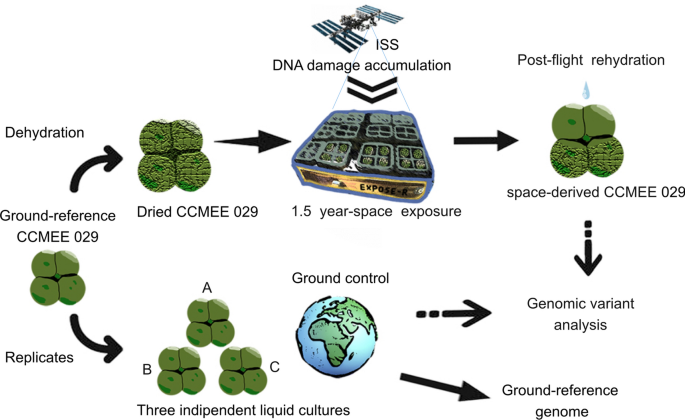Investigating Cyanobacterium Chroococcidiopsis and Its Potential for Supporting Human Exploration on Mars

Cyanobacterium Chroococcidiopsis and Its Resilience
This research focuses on the ability of the desert cyanobacterium Chroococcidiopsis sp. CCMEE 029 to survive in Mars-like conditions. Despite many unknowns about microbial survivability, this study sheds light on its potential for human space exploration.
Study Overview
The experiment utilized the EXPOSE-R2 facility, simulating Mars-like conditions in low Earth orbit. Key findings include:
- Examination of DNA repair capabilities under intense UV radiation.
- Analysis of genomic alterations post-exposure on Earth.
- No significant increase in genomic variants compared to ground-maintained strains.
Conclusion
These findings suggest that cyanobacteria like Chroococcidiopsis may play an essential role in future biotechnological advancements for supporting human missions to Mars. This research is a significant step forward in understanding microbial resilience in space.
This article was prepared using information from open sources in accordance with the principles of Ethical Policy. The editorial team is not responsible for absolute accuracy, as it relies on data from the sources referenced.